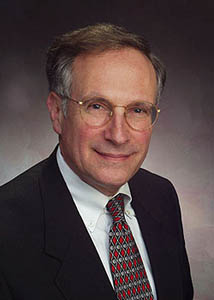Contributions to Public Administration:
Matthew Holden, Jr.

By Academy Fellow
Thomas H. Stanton
Matthew Holden, Jr. has brought the insights of political science to bear on public administration. “The life blood of administration is power,” he wrote, and so too, “The life blood of power is administration.”[1]
For Holden, the history of race relations offered fertile ground to apply these precepts. For example, he saw the inability of Reconstruction to create an integrated political order in terms of administration and power:
“The United States became, after the Civil War, a presumptively free but highly stratified society. The former Confederacy was a territory containing two populations, white and black. The white portion had greater political resources. It also had all the military resources: the police were, after all, the Confederate Army in civilian dress. And the dominant group had no intention of living on terms of formal equality with the other group. If the second population, the freed blacks, were to have their condition notably improved, they required an alliance with the federal government. And if those allies were to be effective, they needed an administrative mechanism that they lacked.”[2]
In his analysis of race relations in the United States, Professor Holden traced the logic of power as it has played out in our American stratified society. Already some years ago, he identified relations of racial and ethnic groups in society as a major source of disruption, both politically and for public administration: “Ethnicity is one of the most profound and recurring sources of disruption in the body politic, and thus one of the most critical facets of current administrative practice, a problem that has been gravely underestimated both by those who study public administration and by practitioners.”[3]
Perhaps today we no longer underestimate this problem: current political struggles in the United States and across the globe whether to integrate societies more fully or deepen their divisions fit well with Holden’s analysis.
Matthew Holden’s work has been widely recognized. He is Henry L. and Grace M. Doherty Professor Emeritus of Politics at the University of Virginia, served as a President of the American Political Science Association, and is a Fellow of the American Academy of Arts and Sciences and of the National Academy of Public Administration. Matthew has participated actively in Academy activities and regularly has contributed his insights to our work.
In his distinguished career he also engaged in numerous public service activities including as a Commissioner both of the Public Service Commission of the State of Wisconsin and of the U.S. Federal Energy Regulatory Commission. A focus of Holden’s work has been to seek integration of both the practical and conceptual spheres, and his numerous contributions over the years have moved the needle in both.
Thomas H. Stanton is an Academy Fellow and author of American Race Relations and the Legacy of British Colonialism (Routledge, 2020).
[1] Matthew Holden, Jr., Continuity and Disruption: Essays in Public Administration (University of Pittsburgh Press, 1996), p. 257.
[2] Ibid, p. 225, footnote omitted.
[3] Ibid, p. 10.
